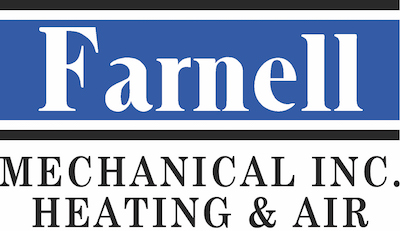
Ever done a double take when you took a look at your last energy bill? Even though high energy bills can be the end result of intense weather conditions, consistently high bills can also indicate an inefficient HVAC system or your home is wasting energy because of other means, like drafty windows or insufficient insulation.
One of the simplest ways to determine whether your home is wasting energy is by calling a home service expert to perform a home energy audit, also called a home energy assessment. Keep reading to find out more about home energy audits, including what they are and their benefits.
What Is a Home Energy Audit?
An energy audit is a comprehensive inspection of how much energy your home consumes and whether – and where – your home might be losing or wasting energy. An inspector will go through previous energy bills during an energy audit to determine where energy is being consumed and how much.
The ultimate goal of an energy audit is to help homeowners save money on their energy bills by suggesting energy-efficient improvements, which may include replacing your current HVAC system, adding new insulation, sealing up leaks, or replacing old windows.
During the energy assessment, the auditor performs an inspection of the outside and inside of your home. The auditor will perform a blower door test on doorways, windows and fireplaces to figure out if there are air leaks in your home. They’ll also inspect your home’s HVAC system, as well as the ductwork, the water heater, and the insulation in your attic. Exhaustive assessments could also include reviewing your current lighting system.
Benefits of a Home Energy Audit
It can be tough for the ordinary homeowner to know for certain how efficient their home is compared to other similar homes in their community. However, local energy companies often offer information about where your home ranks when compared with similar homes and whether it’s more efficient, about average, or inefficient compared to your neighbors’ homes. This could be a useful starting point to determine if you need an energy audit performed.
A few of the benefits of a home energy audit include:
Learning How Efficient Your Home Is
It’s worthwhile to understand how efficient your home is and where you’re using up the most energy. For example, if your ducts are damaged, it will cause a large increase in your energy bills and additional wear and tear on your HVAC system because it has to run longer to fully heat or cool your home.
Making Energy-Efficient Upgrades
An energy audit should expose where you need to make energy-efficient upgrades to conserve energy and lower utility bills. This may include replacing worn weatherstripping or buying a new energy-efficient furnace.
Improving Health and Safety
Allowing air to leak into your home via doors and windows, or due to a lack of insulation can cause unwanted moisture to appear, which could negatively influence your home’s humidity levels or produce mold. This can exacerbate health issues, especially for people dealing with asthma or allergies.
Adding to Your Home’s Retail Value
Energy-efficient homes are preferred by homebuyers. You can sell your home much faster or for more money by telling potential buyers that it’s energy efficient.
How to Perform an Energy Audit of Your Home
Although handling an energy audit independently might not be as thorough as hiring a professional, it’ll offer you a general understanding of how energy efficient your home is. If you don’t discover any flaws during the DIY test, then you likely don’t need to call in a professional. Follow this step-by-step checklist:
- Review your HVAC system. Damaged ducts can lose as much as 20% of conditioned air, leading to more expensive energy bills and increased wear and tear on HVAC equipment. If you discover leaks, use duct tape to close them. If your HVAC equipment is old and wearing down, upgrading to a new system can save you a considerable amount on your energy bills. In some cases, it is better to hire a reputable HVAC company to inspect your system.
- Look for air leaks. Air leaks on average can raise monthly energy bills by 10 to 20%. Inside, look for air leaks in areas where you can find a draft, such as along the edge of flooring and close to baseboards and electrical outlets. Outside, you can look for air leaks along the home’s foundation, siding and mortar. Plug, caulk or seal any air leaks to save money.
- Inspect insulation. If your home is older, it could mean your insulation is too. If you can see the joists, you likely need more insulation.
- Check ventilation. Ensure that all of your kitchen and bathroom exhaust fans are functioning properly, and look for evidence of rot or moisture.
Contact Farnell Mechanical, Inc. for a Professional Energy Audit
If you are interested in professional help figuring out how energy efficient your heating and cooling equipment is, contact the HVAC experts at Farnell Mechanical, Inc. today. We’ve proudly supported the residents of Auburn and Opelika with quality home services for many years. Contact us today to request an appointment.
